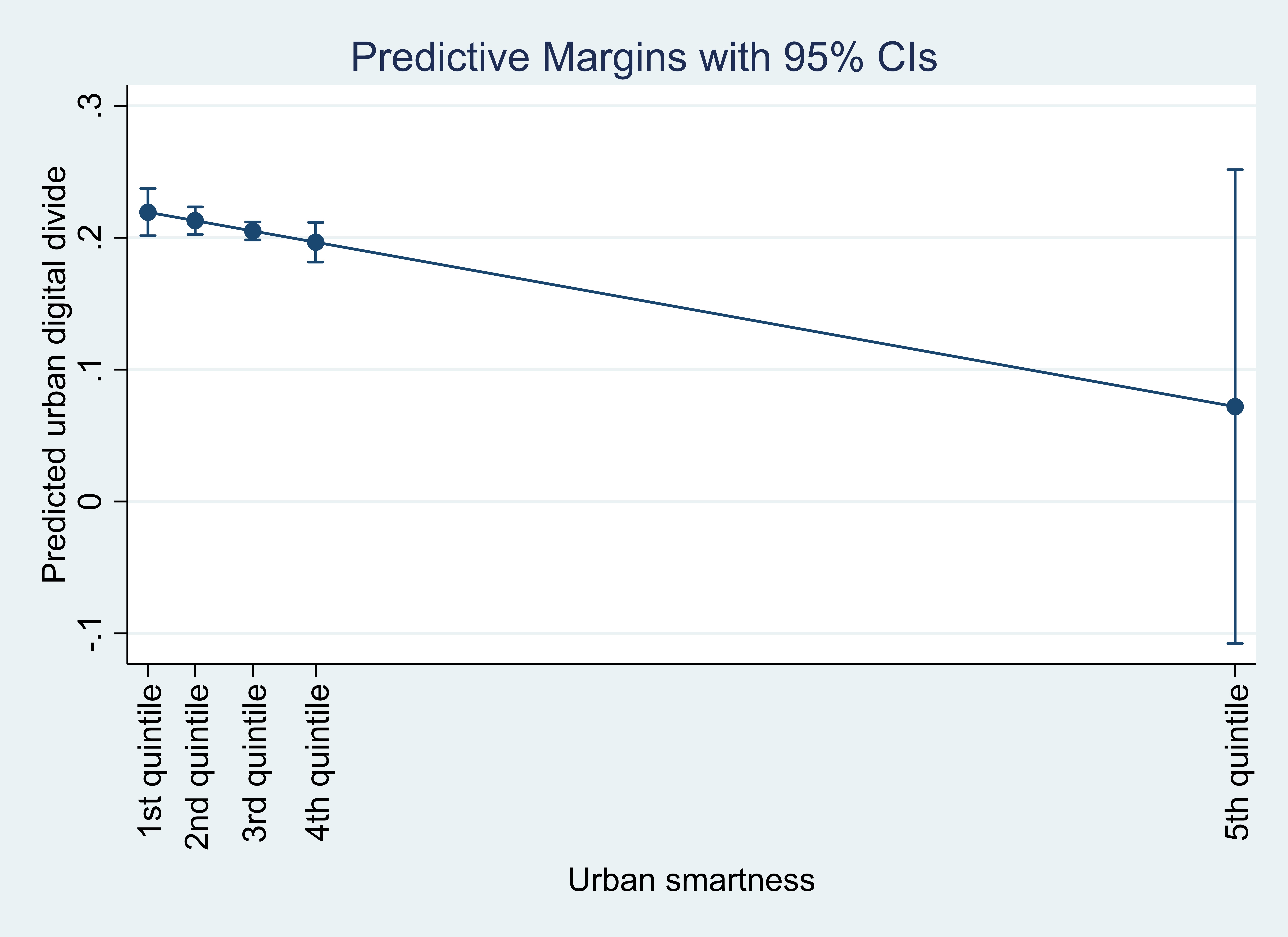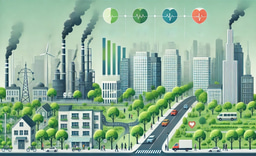Explore the Research

Smart cities and the urban digital divide - npj Urban Sustainability
npj Urban Sustainability - Smart cities and the urban digital divide
Ever since the emergence of digital technologies in the early 1990s, the literature has discussed the potential pitfalls of an uneven distribution of e-skills under the umbrella of the digital divide. To provide a definition of the concept, “Lloyd Morrisett coined the term digital divide to mean “a discrepancy in access to technology resources between socioeconomic groups” (Robyler and Doering, 2014, p. 27)”
Despite digital divide being high on the policy agenda, statistics suggest the persisting relevance of this issue. For instance, focusing on Europe, according to EUROSTAT statistics, in 2021 about 90 per cent of people living in Zeeland, a NUTS2 region in the Netherlands, had ordered at least once in their life goods or services over the internet for private use, against a minimum in the EU27 of 15 per cent (in the region of Yugoiztochen, in Bulgaria). In the same year, while basically all (99 per cent) interviewees in the NUTS2 region of Northern and Western Ireland declared using the internet at least once a week, the same statistic drops to two thirds of the sample in the Bulgarian region of Severozapaden. While over time these territorial divides are converging, they can still significantly affect the potential positive impact of the diffusion of digital technologies.
Over the past three years, the digital divide has been made dramatically apparent by the COVID-19 pandemic outbreak. When, during the first waves of full lockdowns enacted in most Countries, tertiary and schooling activities were moved online, many economic outcomes showed significant worsening. Among these, learning outcomes in pupils and service sectors’ productivity were particularly affected.
A simultaneous development in the scientific literature has discussed the attractive features of planning and managing cities ‘smartly’. Smart Cities have been initially identified as urban areas with a tendency to invest and deploy ICTs. More recently, this notion also started to encompass the context characteristics that make a city capable of reaping the benefits of ICTs – social and human capital, soft and hard institutions.
While mounting empirical evidence suggests a superior economic performance of Cities ticking all these boxes, the Smart City movement did not come without critiques. The debate on urban smartness as an instrument for planning and managing more efficient cities has been recently positing that Smart Cities could be raising inequalities. This effect would be due to the role of driver of smart urban transformations played by multinational corporations, who, in a dystopic view, would influence local policymakers’ agendas.
Given these issues, and our own research on Smart Cities, we started asking ourselves whether the risks of increasing inequalities associated with the Smart City model were substantiated. To this end, we focused on empirically verifying whether cities moving forward along the smart city model were facing increases in income and digital inequalities. We answered the first question in Caragliu and Del Bo (2022), and found compelling evidence that smart city characteristics actually decrease income inequalities. With this paper (Caragliu and Del Bo, 2023), we focus instead on the digital side of the story.
In this work we thus empirically verify whether smart urban characteristics are associated with an increase in urban inequalities along the digital divide dimension among urban dwellers. To this aim, we exploit a large data base of 181 European cities, with data on smart urban characteristics, along with measures of the digital divide obtained with the use of EU-level survey data. Our results suggest that a negative association exists between the level of urban smartness and the intensity of the (within-city) digital divide, meaning that, if anything, making cities smarter actually can help in closing the digital gap among citizens; moreover, results are robust to a number of consistency checks.
Along with these baseline findings, the paper has also opened up the black box of the digital divide, by disentangling the effect of the use of ICTs from that of ownership. Once we separate these two, the negative association between urban smartness and the digital divide remains only when taking ownership into account, with the estimated effect almost twice as large as in the comparable baseline estimates. For use, urban smartness is in fact positively associated with the digital divide. This result suggest that, while the Smart City approach can help in reducing the digital divide, policy-makers should consider the characteristics of the local city dwellers to put in place correction actions to make sure that all can reap the benefits of the planning model. This also suggests the need for Smart City implementation that accounts for local characteristics and context conditions, against a potentially problematic tendency to propose “one size fits all” Smart City solutions.
Taking stock of all findings illustrated in the paper, our results suggest that when moving from the 1st to the 5th quintile of the urban smartness distribution, cities reduce their digital divide roughly by one half (Figure 1). Results presented in the paper also show that such aggregate effect is not driven by the presence of very large-tech-savvy cities such as London, whose exclusion from the analyses does not affect our main findings.
Figure 1. Marginal impact of urban smartness on the intensity of the within-city digital divide

References
Caragliu, A., and Del Bo, C. F. (2022). Smart cities and urban inequality. Regional Studies, 56(7), 1097-1112.
Caragliu, A., Del Bo, C.F. Smart cities and the urban digital divide. npj Urban Sustain 3, 43 (2023). https://doi.org/10.1038/s42949-023-00117-w
Robyler, M.D., and Doering, A.H. (2014, 6th ed.). “Integrating educational technology into teaching”, Harlow (UK): Perason Education.
Follow the Topic
-
npj Urban Sustainability

An open access, online-only journal for urban scientists, policy makers and practitioners interested in understanding and managing urbanization processes.
Related Collections
With Collections, you can get published faster and increase your visibility.
Reimagining Urban-Rural Relationships for Sustainable Futures
Publishing Model: Open Access
Deadline: Aug 10, 2026
Radical Civic Practices: The Future of Urban Environmental Justice Studies in a Highly Unequal World
Publishing Model: Open Access
Deadline: Jun 10, 2026



Please sign in or register for FREE
If you are a registered user on Research Communities by Springer Nature, please sign in